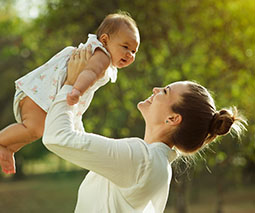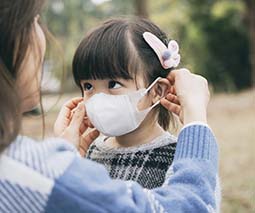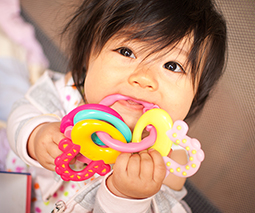We’d like to remind you that babies born in December live longer

If you’re having a baby in December OR you were born in December yourself, you’re in it for the long haul researchers say …
Bolstering news, everyone!
Because it’s December this bolstering study has resurfaced and it’s good news for some Christmas babies.
Granted some sneaky buggers might try to slip you a combined birthday/festive gift and that sucks big time. But this pesky problem is perhaps offset by the fact that a December birth means you may well live the longest of us all.
The catch is that this research was done in the US, where the seasons are the OPPOSITE of Australia, and it’s thought that there are seasonal reasons for this trend.
Live long and prosper
Those born in December are likely to live past 100 years of age researchers explain in a study published in the Journal of Ageing Research. In fact, they’re dubbed ‘semi-supercentenarians’ … so that’s something to celebrate/get printed on a mug!
“It was found that more semi-supercentenarians [persons aged 105+ years] than expected were born in December,” the study author says, “while the proportion of semi-supercentenarians born in June was low.”
“This study suggests that the December-born have a significantly higher risk of surviving up to age 105+ compared to the June-born.”
Read more about family health:
- Renewed warnings for mums to avoid eating placenta products
- How on earth do you clean all that wax from children’s ears?
- How ‘The First 1000 Days’ can shape your baby’s health for life
- If you swallow a Lego here’s when it’ll poop out the other end
Optimising those early weeks and months is vital
As we said, the study looked at US centenarians and searched for any patterns that might contribute to their longevity.
It was suggested that those born in December (the first month of WINTER in the US) were (surprisingly) exposed to fewer infectious seasonal illnesses and it’s thought that these early infections had health implications for individuals in the long term.
“Reduced lifetime exposure to infection and subsequent inflammation may explain both declining mortality at older ages and decreasing amplitude of month-of-birth effects on lifespan over time,” the study concluded (amongst many other findings.)
“The results obtained in this study suggest that optimizing the process of early development can potentially result in avoiding many diseases in later life and significant extension of healthy lifespan. More research is needed to determine more specific factors of seasonal birth effects on longevity.”
“Early-life environmental conditions may have long-lasting effects on human ageing and longevity,” the researchers suggest.
Interesting, non?! And also confusing. Yep.
Seasonal differences aside the sum total is … if you can avoid early infections you might just live to be 105!









